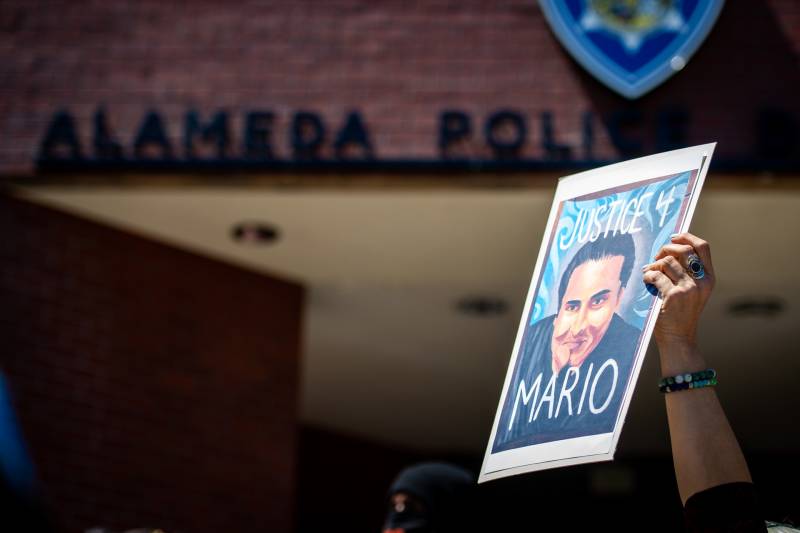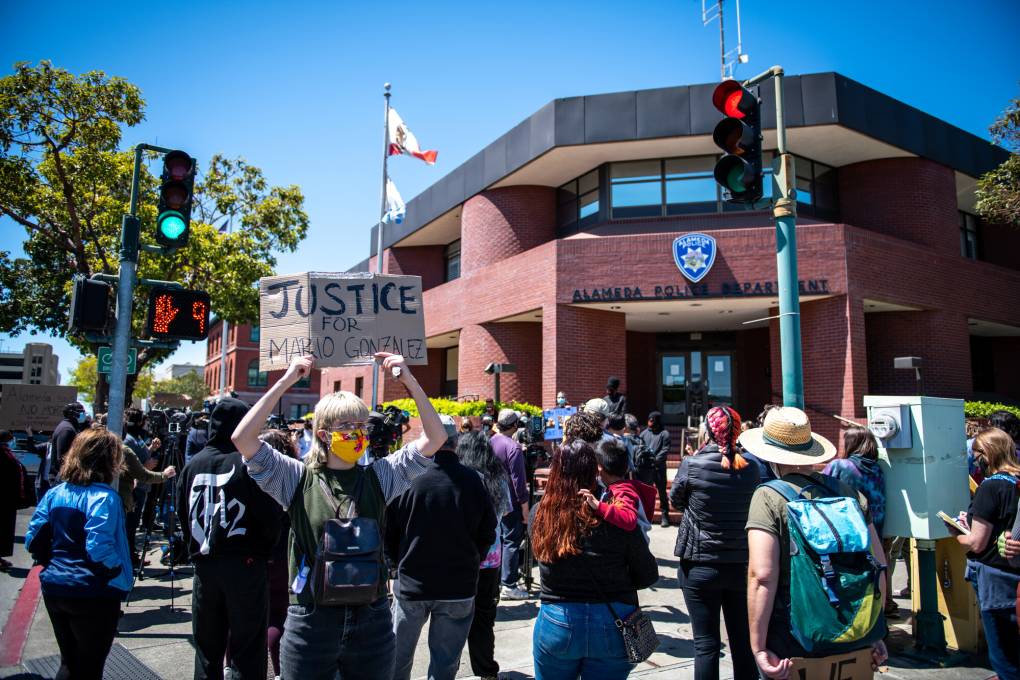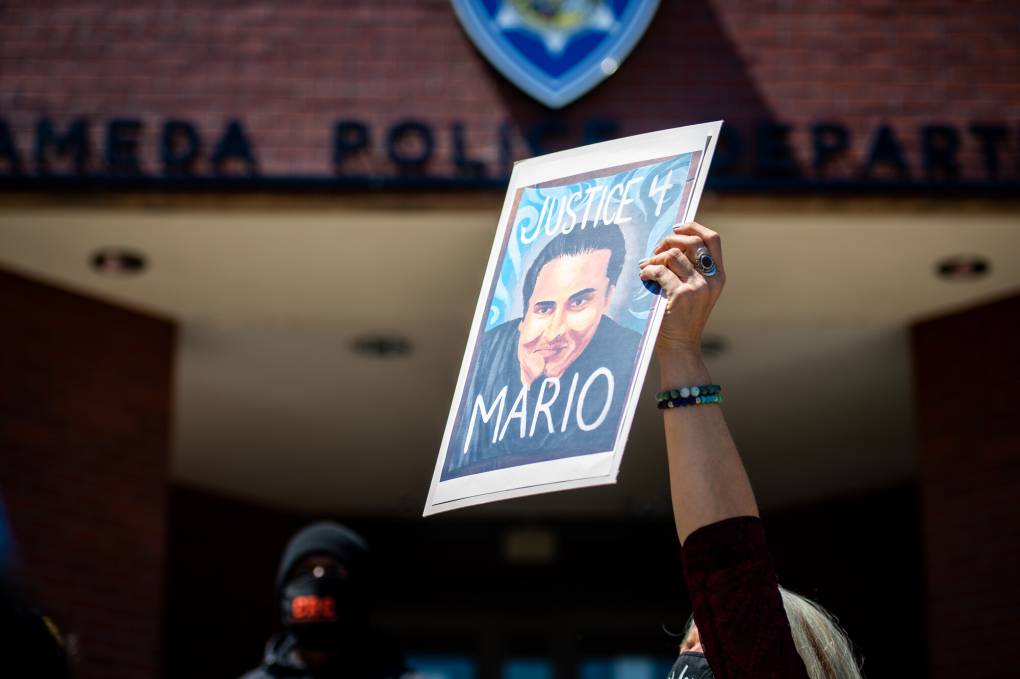“He seems like he’s tweaking. But he’s not doing anything wrong, he’s just scaring my wife,” the caller said.
The second caller reported the man lingering in the park on Oak and Powell streets and appearing to be trying to break store security tags off alcohol bottles.
As captured in the nearly hour-long bodycam video, the incident began calmly, but after the three officers’ made repeated, unsuccessful attempts to obtain Gonzalez’s full name or ID, they grabbed him, never saying he was under arrest. When Gonzalez resisted being handcuffed, the officers took him to the ground, pinning him on his stomach, with at least one pressing an elbow and knee into his back and shoulder. They handcuffed him, holding him down with his hands behind his back as he continued to struggle for roughly five minutes, at which point he appeared to go limp and stopped breathing.
After the officers performed CPR and administered at least two doses of Narcan — given to counteract opiate overdoses — Gonzalez was rushed by paramedics to Alameda Hospital and pronounced dead at 11:45 a.m., according to the autopsy report.
Following the release of the video in late April, a slew of social justice activists and policing experts were quick to lambaste the officers, accusing them of unnecessarily escalating a situation that did not appear to necessitate the use of force.
“To us, the autopsy is pretty much consistent with what we believe, which is that Mario would still be here if not for the overaggressive, heavy-handed tactics of the police,” said Adante Pointer, an attorney representing Gonzalez’s mother.
Pointer said attorneys for the officers likely will continue to home in on the other factors listed in the report that contributed to Gonzalez’s death in an effort to “wash their hands of what they did.”
“But the truth of the matter is all of those are preexisting conditions or habits that he had that if he had not interacted with the police, he would have lived through,” he said. “You still can’t run from the ultimate conclusion that this was a homicide and the police officers should be held accountable.”
Pointer said he would continue to push for the officers’ termination, and pressure the district attorney to criminally prosecute them, while also pursuing a substantial financial settlement from the city “to compensate this family for the loss of their loved one.”
Gonzalez’s mother is relieved that the autopsy acknowledges that “the officers killed her son and that he essentially didn’t do it to himself,” Pointer said.
“However, in the holiday season, what she’d like more would be for her son to be coming to the door, spending the holidays with their family,” he added. “He’ll never do that. So, you know, this is kind of a hollow victory, if you will, but a victory nevertheless.”
KQED’s Tara Siler contributed reporting to this story.



